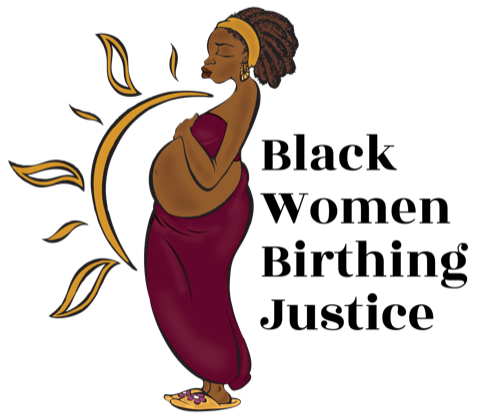Rethinking Black History Month
Rethinking Black History Month: Black Women's Lives Matter Every Day
This year, I stopped celebrating Black History Month. The celebration was established by trailblazing African American historian Dr. Carter G. Woodson in order to bring attention to the contributions of African Americans to U.S. society, but in my opinion, it has become just another tool of white supremacy to placate progressive whites and people of color by acting as if Blackness matters to this country. This feigning of interest and concern has always been present in the collective consciousness, but as I sit and write this, it is visible in catastrophic ways. We are dying. We are being disenfranchised, diseased and murdered on so many levels. The violence is only silent as far as mainstream media is concern, but the screams do not escape my ears. My work with birthing women makes it impossible to ignore.
Remembering how to be a midwife has opened my eyes. I am unable to turn a blind eye to how women of color are disrespected and abused in the medical system because of the color of their skin. As an Afro-Latina woman, I know that this also includes lack of informed consent not just because of racism but also due to language barriers. The situation makes me want to put my fist through a wall. But I need my hands to do something more productive, like provide support to a laboring woman who needs counter-pressure on her lower back during a contraction. The fact that women of color nationally and globally suffer throughout the trajectory of their reproductive health care keeps me focused on the hoops I have to jump through. These hoops are the same ones that nearly wiped out the knowledge of granny midwives in the South. This is what they don’t mention during February’s supposed celebration of our history.
Black midwives are one of the last battalions we have for women of color. Our work is an echo of granny midwives here in the United States, and parteras and traditional midwives in the Caribbean. It is the legacy of the traditional motherwit carried from African by enslaved midwives and healers. The ancestral midwives were the ones who cared for their “mistresses,” and fellow enslaved women. When plantation slavery was abolished, they focused their care on impoverished Black women who were excluded from the hospitals that white women increasingly flocked to. This tradition was wiped out because white male doctors aspired to conquer and control the field of obstetrics and gynecology. The same hoops I have to jump through in terms of certification and licensure are the ones that were created to drive granny midwives out of their profession. The medical establishment began to systematically remove granny midwives from their communities around the 1920s. Demanding that lay midwives be licensed, and then failing to process or approve their applications, was one method used by doctors to reduce the numbers of midwives. Even today, being able to get a license to practice midwifery is a challenge and to have it respected is a whole other story.
The disparities in reproductive health care that women of color face need to be highlighted every single day of the year. When African American women are four times more likely to die in childbirth than white women, we have a dire necessity for more health care providers who genuinely love their clients. When Latina and Black women are at a higher risk for every complication during pregnancy, childbirth and the entirety of their lives, we must challenge racism in the healthcare system with ferocity.
While our Black/Latino male counterparts are active in the fight to defend black and brown lives against police violence, they seldom acknowledge the attacks on our reproductive capacities experienced by women of color. What is more important for humanity than the ability to bring and sustain life on the planet? Who can deny that the most valuable resource in making that happen is women? Therefore, calls to reinstate our homegrown midwives and healers, improve the conditions our women experience in the hospitals and create spaces for comprehensive reproductive healthcare are imperative to the survival and thriving of people of color in this world.
History as we know it–dominated by white supremacy, capitalism and patriarchy–will continue to repeat itself if we accept these watered down celebrations of Blackness that do nothing to dismantle the horrific realities we face daily. I implore all African-descendant people to make our historic struggle for wellness, liberation and self-determination more than just a month-long. Our future generations depend on us relearning how to support our women in birth and reproductive health, and taking steps to reclaim our bodies and our reproductive lives.
Ynanna Djehuty is an Afro-Quisqueyana born and raised in the Bronx. She is a midwife, doula and writer. The focus of her work is the empowerment of women and people of the African Diaspora. She utilizes her experience as a midwife and reproductive health advocate to raise awareness on maternal and reproductive health for women, highlighting the disparities in the healthcare system in the U.S. for women of color. She is pursuing certification to receive her midwifery so that she may continue to serve women in New Jersey and New York.
